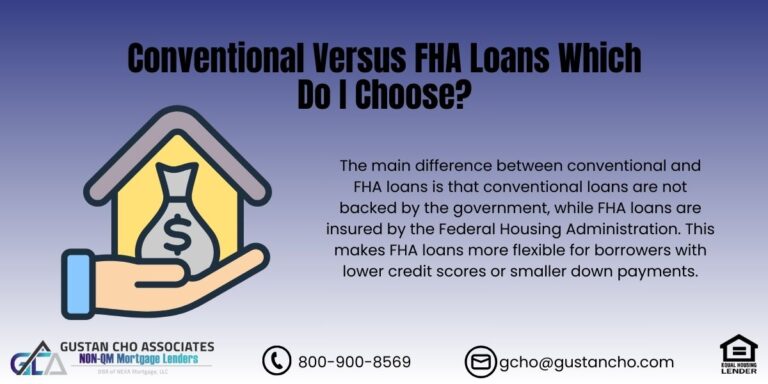Mortgage Loan With Judgment? Here’s How You Can Qualify
Qualifying for a Mortgage Loan With Judgment: Your 2024 Guide
If you’re trying to get a mortgage loan with a judgment on your credit report, you might think it’s impossible. The good news? It’s not! Even with an outstanding judgment, you can still qualify for a conventional or FHA mortgage. Still, there are specific steps that you must take. In this updated 2024 guide, we’ll walk you through everything you need to know about qualifying for a mortgage loan with a judgment.
What Is a Judgment on Your Credit Report?
A judgment is a court order confirming that you owe a creditor money. It’s one of the worst items that can appear on your credit report because it means the creditor took you to court and won. This can happen if you have unpaid collections or charged-off accounts. Once a judgment is issued, the creditor has more legal power to collect your debt.
Can I get a mortgage if I have a judgment?
Yes, you can still qualify for a mortgage loan with a judgment on your credit report. Lenders understand that life happens and are willing to work with borrowers who show they are managing their debt responsibly. The key is having a payment agreement with the judgment creditor and showing a history of making payments.
How to Get a Mortgage Loan With a Judgment in 2024
There are specific steps to get a mortgage loan with a judgment on your credit report. Here’s what you need to know:
- Settle or Create a Payment Agreement: You don’t have to pay the full amount of the judgment right away to qualify for a mortgage. However, you must have a written payment agreement with the judgment creditor. This agreement shows the lender that you are taking responsibility for the debt.
- Make Payments for at Least Three Months: Lenders want to see that you’ve made at least three months of payments on the judgment. These payments need to be made on time and in full. You can’t pay all three months at once—it must be done over three consecutive months.
- Get a Release From the Judgment Creditor: Once you’ve settled or created a payment agreement, make sure you get a release of judgment from the creditor. This proves that the creditor is no longer pursuing you for the full amount and that the debt is being handled.
Will a Judgment Stop Me From Getting a Mortgage?

A judgment can make getting a mortgage harder, but it doesn’t stop you from qualifying altogether. If lenders see you actively working to pay off your debt, they are more likely to approve your mortgage loan.
Here are a few things lenders will check before approving you:
- Payment Agreement: Do you have a written payment plan with the judgment creditor?
- Payment History: Have you made at least three months of timely payments?
- Judgment Release: Have you obtained a release or settlement from the creditor?
2024 Update: What Has Changed in Mortgage Approvals?
Lenders are becoming more flexible in 2024, especially for borrowers with judgments. New non-QM loans (non-qualified mortgage loans) make it easier for borrowers with poor credit or judgments to qualify for financing. These loans don’t follow traditional lending guidelines, so even if you have a judgment on your credit, you might be able to get approved with a higher down payment or adjusted terms.
How Do Judgments Impact Mortgage Underwriting?
Mortgage lenders will closely examine your credit report during the underwriting process. If they see a judgment, they’ll want to know how you handle it. Here’s how they evaluate it:
- Proof of Payment Plan: Underwriters must see that you’ve set up a payment plan with the creditor.
- Payment History: They’ll ask for canceled checks or bank statements to show you’ve made at least three on-time payments.
- Settlement or Release: If you’ve settled the debt, the underwriter will want proof that the judgment is fully satisfied or that a release has been issued.
Mortgage Without Paying Off Judgment
You can still get approved for a mortgage loan without paying off the entire judgment. The key is showing the lender that you’re actively working on settling it. Most lenders won’t require the full balance to be paid off before approving your loan, but some may ask that the judgment be resolved before closing. If this is the case, work with your loan officer and attorney to time the payment appropriately so it doesn’t impact your loan approval.
Can You Get a Mortgage If a Judgment Is Not on Your Credit Report?
Sometimes, judgments don’t appear on your credit report. This could happen if the judgment hasn’t been reported yet or was missed by the credit reporting agency. Even in these cases, being upfront with your lender is essential. It could delay or jeopardize your mortgage approval if they find out about the judgment during the underwriting process. It’s better to disclose it early and show that you have a plan to settle the debt.
Paying Off a Judgment: Should You Do It?
Paying off a judgment can actually lower your credit score. That’s because the credit scoring system may see the closure of an old account as a new event, which can negatively impact your score. So, if you plan to pay off a judgment to qualify for a mortgage, speak with your loan officer first. They can advise you on the best time to pay it off, possibly just before closing.
What Happens After I Close on My Mortgage?
Once your mortgage loan closes, the lender is no longer concerned with your credit or financial situation. Their only focus will be ensuring that your mortgage payments are made on time and that the home is insured. After closing, you are still responsible for paying off your judgment (if you haven’t fully settled it) as per your payment agreement.
Mortgage Loan With Judgment for Real Estate Investors
Yes, real estate investors can also qualify for a mortgage loan with a judgment on their credit report. Just like with regular homebuyers, investors need to have a written payment plan in place and have made at least three months of on-time payments. Lenders providing non-QM loans have more lenient guidelines, which makes them an ideal option for investors seeking property financing even with judgments on their credit.
Non-QM Loans: A Flexible Option for Borrowers With Judgments
Loans that are non-QM are intended for individuals who do not meet conventional lending criteria. If you have a judgment, a non-QM loan might be the best option. These loans offer more underwriting flexibility, meaning judgments, collections, and even bankruptcies may not disqualify you. However, you might need to pay a higher interest rate or provide a larger down payment to offset the added risk.
Frequently Asked Questions About Mortgage Loan Without Judgment
Here are some frequently asked questions about qualifying for a mortgage loan with a judgment:
Q: Can I Get a Mortgage With a Judgment?
A: Yes, you may be eligible for a mortgage even if you have a judgment against you, as long as you have a payment plan with the creditor and have made at least three consecutive on-time payments.
Q: Do I Have to Pay Off the Judgment Before I Can Get a Mortgage?
A: Not always. Some lenders will approve your mortgage loan if you’ve entered a payment plan with the creditor. However, other lenders may require the judgment to be paid off before closing.
Q: Can I Negotiate the Judgment Amount?
A: Yes, many judgment creditors are willing to settle the debt for less than the original amount. You can also negotiate to remove any late fees or penalties as part of the settlement.
Q: Does Paying Off a Judgment Hurt My Credit?
A: It can. Paying off old debts like judgments can sometimes lower your credit score because it closes an account that’s been inactive for some time. Speak with your loan officer before making any payments.
Q: Can I Qualify for an FHA Loan With a Judgment?
A: Yes, FHA loans are more flexible than conventional loans when it comes to judgments. FHA lenders will likely approve your mortgage if you have a payment plan.
Q: Can I Qualify for a VA Loan With a Judgment?
A: Yes, VA loans are possible with a judgment, but you must show a payment plan and a history of making consistent payments. VA lenders, like FHA lenders, have more lenient guidelines, but every situation is reviewed individually. The key is demonstrating that you are actively addressing the judgment.
Q: How Does a Judgment Affect My Credit Score When Applying for a Mortgage?
A: If you have a judgment, it can lower your credit score and make it harder to get a regular mortgage. But if you’ve worked to resolve the judgment, like by making a payment agreement, lenders might still approve your loan. Remember, your credit score isn’t the only thing lenders look at—your income, debt-to-income ratio, and payment history also matter.
Q: Can a Judgment Be Removed From My Credit Report?
A: A judgment can be removed from your credit report if it is vacated or dismissed by the court or after it has been paid and settled. If the judgment is inaccurate or you believe it was reported in error, you can dispute it with the credit bureaus. Once the judgment is paid, you should request that the creditor file a satisfaction of judgment in public records to clear it from your credit report.
Q: Can I Get a Mortgage If the Judgment Is From Many Years Ago?
A: Even if the judgment is old, you can still qualify for a mortgage. However, lenders will want to see that you’ve addressed the judgment by paying it off or entering into a payment plan. Judgments don’t go away on their own, so you’ll need to show that you’ve made an effort to settle the debt.
Q: What Happens if I Stop Paying the Judgment After I Get My Mortgage?
A: After your mortgage loan is finalized, the lender will not be part of your credit or payment agreements with the judgment creditor. Nevertheless, ceasing payments on the judgment may result in additional legal measures, like wage garnishment or asset seizing. Adhering to your payment plan is crucial to prevent these repercussions. Moving forward, the mortgage lender will solely focus on your mortgage payments.
Final Thoughts: Get Help With Your Mortgage Loan With Judgment
Getting approved for a mortgage loan with a judgment is possible, but it takes some extra work. You’ll need a clear payment plan with the creditor, make consistent payments, and work with your lender to ensure everything is in order. Non-QM loans are more flexible if traditional lenders don’t approve you.
Looking for assistance with navigating the mortgage process while dealing with a judgment? Get in touch with us now to discuss the options that are available to you. Our team is here to help 7 days a week, including evenings and weekends, to help you find the most suitable loan for your circumstances.
This blog about “Mortgage Loan With Judgment? Here’s How You Can Qualify” was updated on October 3rd, 2024.







